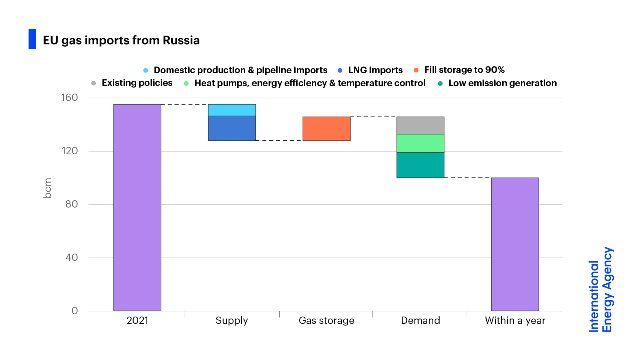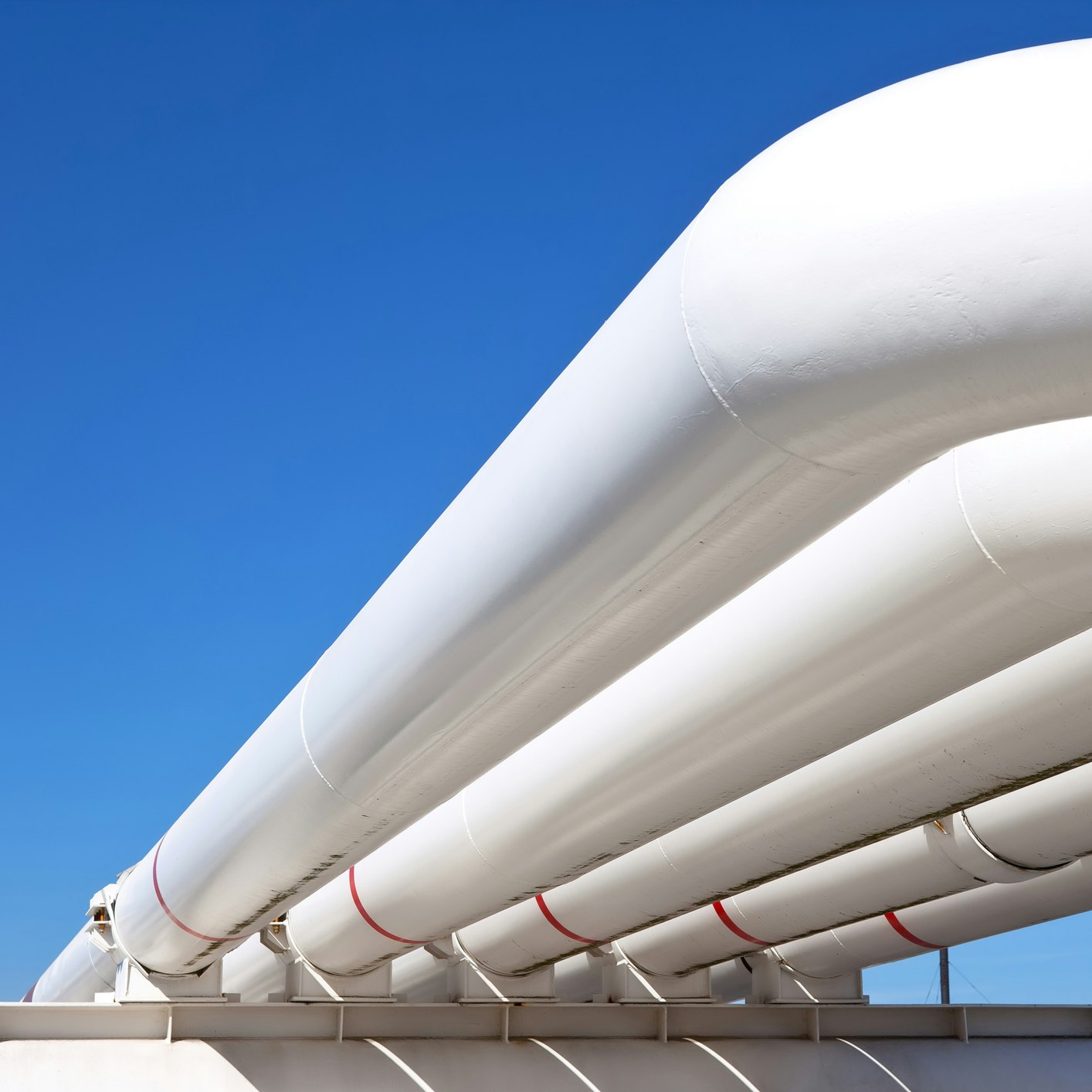
IEA’s 10-Point Plan to cut natural gas imports from Russia
The European Union could reduce its imports of Russian natural gas by more than one-third within a year through a combination of measures that would be consistent with the European Green Deal and support energy security and affordability, new IEA analysis shows.
Europe’s reliance on imported natural gas from Russia has again been thrown into sharp relief by Russia’s invasion of Ukraine. The IEA’s 10-Point Plan to Reduce the European Union’s Reliance on Russian Natural Gas includes a range of complementary actions that can be taken in the coming months, such as turning more to other suppliers, drawing on other energy sources and accelerating efforts to provide consumers, businesses and industry with the means to use clean and efficient alternatives to natural gas. The proposed measures are fully consistent with the EU’s European Green Deal and its Fit for 55 package, paving the way for further emissions reductions in the years to come.
In 2021, the European Union imported 155 billion cubic metres of natural gas from Russia, accounting for around 45% of EU gas imports and close to 40% of its total gas consumption. Progress towards Europe’s net zero ambitions will bring down its use and imports of gas over time, but today’s crisis raises the specific question about imports from Russia and what more can be done in the immediate future to bring them down.
The key actions recommended in the IEA’s 10-Point Plan include not signing any new gas contracts with Russia; maximising gas supplies from other sources; accelerating the deployment of solar and wind; making the most of existing low emissions energy sources, such as nuclear and renewables; and ramping up energy efficiency measures in homes and businesses.
The 10 points
- Do not sign any new gas supply contracts with Russia. [Impact: Enables greater diversification of supply this year and beyond]
- Replace Russian supplies with gas from alternative sources [Impact: Increases non-Russian gas supply by around 30 billion cubic metres within a year]
- Introduce minimum gas storage obligations [Impact: Enhances resilience of the gas system by next winter]
- Accelerate the deployment of new wind and solar projects [Impact: Reduces gas use by 6 billion cubic metres within a year]
- Maximise power generation from bioenergy and nuclear [Impact: Reduces gas use by 13 billion cubic metres within a year]
- Enact short-term tax measures on windfall profits to shelter vulnerable electricity consumers from high prices [Impact: Cuts energy bills even when gas prices remain high]
- Speed up the replacement of gas boilers with heat pumps [Impact: Reduces gas use by an additional 2 billion cubic metres within a year]
- Accelerate energy efficiency improvements in buildings and industry [Impact: Reduces gas use by close to 2 billion cubic metres within a year]
- Encourage a temporary thermostat reduction of 1 °C by consumers [Impact: Reduces gas use by some 10 billion cubic metres within a year]
- Step up efforts to diversify and decarbonise sources of power system flexibility [Impact: Loosens the strong links between gas supply and Europe’s electricity security]
Information Source: Read More


A 10-Point Plan to Reduce the European Union’s Reliance on Russian Natural Gas
Oil and gas, press , | Energy, Climate, Renewable, Wind, Biomass, Sustainability, Oil Price, LPG, Solar, Electric,

